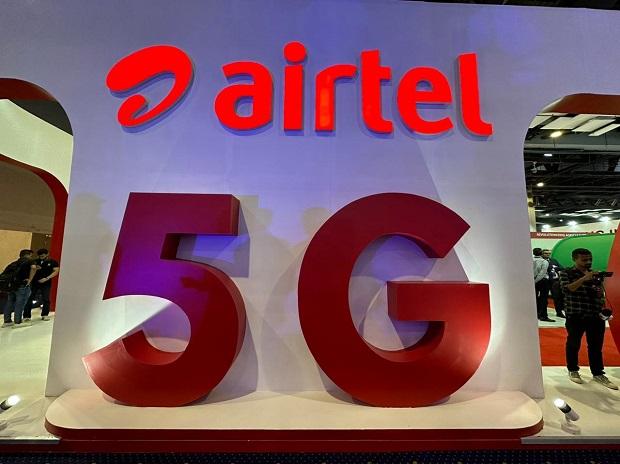[ad_1]
Shares of Bharti Airtel dipped 4 per cent to Rs 760.60 on the BSE in Wednesday’s intra-day trade after analyst at JP Morgan downgraded the stock to ‘Underweight’ with a new price target of Rs 710, as the brokerage firm believes a combination of higher 5G capex and the absence of tariff hikes will drive down ROICs.
The stock of telecom services provider hit a near three-month low and traded at its lowest level since October 17, 2022. With today’s fall, the market price of Bharti Airtel has now corrected 13 per cent from its record high of Rs 877.10, touched on November 25, 2022.
At 10:54 AM; the stock quoted 3.3 per cent lower at Rs 766.90, as compared to 0.03 per cent rise in the S&P BSE Sensex. The average trading volumes at the counter more-than-doubled, with a combined 11.3 million shares changing hands on the NSE and BSE.
However, in the previous calendar year 2022, Bharti Airtel had outperformed the market and surged 18 per cent, as against 4.4 per cent gain in the Sensex.
The expectation of another round of tariff hikes in 2022 aided the rally in Bharti’s stock price. However, that didn’t come through. Instead, 5G spectrum auctions at relatively expensive prices pushed back tariff hikes as Bharti and Jio both focus on rolling out 5G services in order to get a first-mover advantage, analyst at foreign brokerage firm said.
“2023 should be defined by competitive 5G rollouts, a battle for premium smartphone subscribers and delays in price repair. We expect competitive 5G rollouts to gain momentum, with negative surprises on capex and subsidies to drive adoption,” analyst at JP Morgan said in India Telecom sector update.
“We also see hesitance from telcos in taking tariff hikes, given a lack of adequate consumer appetite that could be delayed further, given an upcoming election cycle. Higher-than-expected capex, delayed price repair and a lack of 5G monetization should halt the industry wide ROIC repair that we now expect to decline/flat-line over FY23-25. This drives us to downgrade Bharti from OW to UW as higher 5G capex, delayed tariff hikes and premium price competition drive down ROICs,” the brokerage firm report stated.
[ad_2]
Source link



